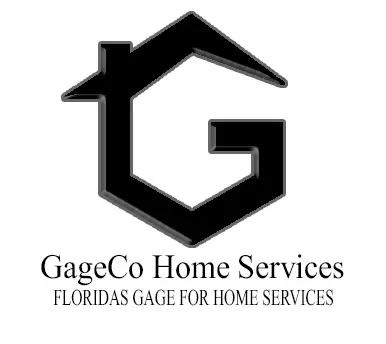If you’re wondering who regulates property management companies in Florida, you’re in the right place. The oversight is mainly handled by several key organizations:
- Florida Department of Business and Professional Regulation (DBPR)
- Florida Real Estate Commission (FREC) within DBPR
- Division of Florida Condominiums, Timeshares, and Mobile Homes (also part of DBPR)
Property management is vital for maintaining residential and commercial properties in Florida. From single-family homes to office buildings, professional management ensures properties are well-kept and profitable.
Whether you are a property owner or thinking about starting a property management company, understanding who regulates these companies is crucial. Knowledge of these regulatory bodies will help you stay compliant and successful in the Florida real estate market.
Regulatory Bodies for Property Management in Florida
Florida Department of Business and Professional Regulation (DBPR)
The Florida Department of Business and Professional Regulation (DBPR) is the main regulatory body overseeing property management companies in Florida. The DBPR handles licensing, oversight, and enforcement to ensure that property management companies operate within legal parameters.
Key Responsibilities of DBPR:
- Licensing: The DBPR issues licenses for property managers involved in leasing activities. This includes real estate licenses for those handling rentals and leases.
- Oversight: The department monitors compliance with state laws and regulations, ensuring property managers adhere to professional standards.
- Enforcement: The DBPR has the authority to take disciplinary actions against property managers who violate regulations, including imposing fines or revoking licenses.
Division of Florida Condominiums, Timeshares, and Mobile Homes
The Division of Florida Condominiums, Timeshares, and Mobile Homes is a specialized division within the DBPR. This division focuses on the regulation and compliance of community associations, such as homeowners’ associations (HOAs) and condominium associations.
Key Responsibilities of the Division:
- Regulation: The division enforces the Florida Statutes, Chapter 720 (Homeowners’ Association Act), which outlines the rules and guidelines for HOAs.
- Compliance: Ensures that community associations adhere to state laws, maintaining fair and transparent operations.
- Community Associations: Provides oversight and support to community associations, helping them manage daily operations and administrative tasks effectively.
Florida Real Estate Commission (FREC)
Within the DBPR, the Florida Real Estate Commission (FREC) plays a crucial role in regulating property management activities related to real estate transactions.
Key Responsibilities of FREC:
- Licensing: FREC oversees the issuance of real estate licenses required for property managers involved in leasing and renting activities.
- Education: Mandates pre-licensing courses and continuing education for real estate professionals to ensure they stay updated with industry standards and legal requirements.
- Enforcement: Handles complaints and conducts investigations into unethical or illegal practices by licensed property managers.

Understanding these regulatory bodies and their roles is essential for anyone involved in property management in Florida. Staying compliant with their guidelines ensures smooth operations and helps avoid legal issues.
Next, we’ll dive into the specific licensing requirements for property managers in Florida to help you steer the process effectively.
Licensing Requirements for Property Managers in Florida
Real Estate License
In Florida, property managers who are involved in leasing activities need a real estate license. This is because leasing is considered a real estate activity under Florida Statute 475. If you’re showing properties, negotiating lease terms, or signing lease agreements on behalf of property owners, you must be licensed.
To get a real estate license, you need to:
- Complete Pre-Licensing Courses: These courses cover essential real estate principles and practices.
- Pass a State Exam: After completing the courses, you must pass a state exam to demonstrate your knowledge.
- Meet Additional Criteria: This includes a background check and other requirements set by the Florida Real Estate Commission (FREC).
If you are paid by commission for your leasing activities, you must have a real estate broker’s license. This allows you to list rental properties in the Multiple Listing Service (MLS) and use other real estate marketing methods.
Community Association Manager License
A Community Association Manager (CAM) license is required if you manage certain types of associations and receive compensation for your services. This includes homeowners’ associations (HOAs), condominium associations, and cooperative associations.
Key requirements for a CAM license include:
- Providing Management Services: You must be involved in managing the day-to-day operations of the association, such as collecting dues, enforcing rules, and maintaining common areas.
- Compensation: The license is required if you are paid for your management services.
For more information on obtaining a CAM license, you can contact the Florida Real Estate Commission (FREC), which oversees the licensing process.
Understanding these licensing requirements is crucial for anyone looking to manage properties or community associations in Florida. Next, we’ll explore the various responsibilities that property management companies have to ensure smooth operations and compliance with state laws.
Responsibilities of Property Management Companies
Property management companies in Florida have a broad range of responsibilities. These tasks ensure that rental properties are well-maintained, financially sound, and compliant with all relevant laws and regulations. Let’s break down these responsibilities into three main categories: Maintenance and Repairs, Financial Management, and Rule Enforcement.
Maintenance and Repairs
One of the primary duties of a property management company is to oversee the day-to-day operations, which includes maintaining and repairing properties. This ensures that properties remain in good condition and safe for tenants.
Common Areas, Equipment, and Systems
Property managers are responsible for the upkeep of common areas, such as lobbies, hallways, and shared amenities like pools or gyms. They must also ensure that all equipment and systems, including HVAC units, plumbing, and electrical systems, are functioning properly.
- Regular Inspections: Regular checks help identify and address potential issues before they become major problems.
- Emergency Repairs: A prompt response system for emergencies, like a burst pipe or electrical failure, is essential for tenant safety and satisfaction.
- Preventive Maintenance: Implementing a preventive maintenance schedule can help avoid costly repairs down the line.
Financial Management
Effective financial management is critical for the success of any property management company. This involves budgeting, making financial decisions, and managing fiscal policies.
Budgeting and Fiscal Policy
Property managers must create and manage budgets to ensure that all expenses are accounted for and that the property remains financially healthy.
- Budget Planning: Developing a comprehensive budget that covers all expected expenses, such as maintenance, repairs, and utilities.
- Financial Reporting: Providing regular financial reports to property owners and association boards to keep them informed about the property’s financial status.
- Expense Management: Keeping track of all expenses and ensuring they are within the budget. This includes negotiating contracts with vendors and service providers to get the best rates.
Rule Enforcement
Property managers are also responsible for enforcing the rules and policies set by the property owner or the association board. This ensures that all tenants comply with the community’s guidelines, maintaining a harmonious living environment.
Association Policies and Compliance
Enforcing rules is crucial to maintaining order and ensuring that all tenants enjoy a high quality of life.
- Policy Implementation: Implementing the decisions of the association board and ensuring all residents comply with the established rules.
- Penalties for Violations: Administering penalties for rule violations, such as fines or other disciplinary actions, as decided by the association board.
- Resident Communication: Keeping open lines of communication with residents to address their concerns and ensure they understand the rules and the reasons behind them.
By effectively managing maintenance, finances, and rule enforcement, property management companies play a crucial role in ensuring that properties are well-maintained and that tenants are satisfied. This helps to improve property values and create a positive living environment for all residents.
Filing Complaints Against Property Management Companies
If you have issues with a property management company in Florida, several avenues are available for filing complaints. Understanding where to file and what to expect can help you address problems efficiently.
Department of Housing and Urban Development (HUD)
The Department of Housing and Urban Development (HUD) handles federal complaints, particularly those related to discrimination and tenant rights. If you believe you have been discriminated against based on race, color, national origin, religion, sex, familial status, or disability, you can file a complaint with HUD.

Steps to File a Complaint with HUD:
- Gather Evidence: Collect all relevant documents, such as emails, letters, and lease agreements.
- File Online: Visit the HUD website and complete the complaint form.
- Follow Up: HUD will investigate your complaint and may take legal action if they find evidence of discrimination.
Better Business Bureau (BBB)
The Better Business Bureau (BBB) is another platform where you can file complaints against property management companies. The BBB focuses on resolving consumer complaints and ensuring fair business practices.
Steps to File a Complaint with the BBB:
- Visit the BBB Website: Go to BBB’s complaint page and select the type of complaint you want to file.
- Provide Details: Fill in the details of your complaint, including the company’s name and a description of the issue.
- Submit and Track: After submitting, you can track the status of your complaint through the BBB’s online portal.
Local Departments and Legal Action
For issues not covered by HUD or BBB, you can turn to local departments and consider legal action.
Local Departments:
- County or City Government: Local housing authorities can address complaints related to health and safety violations. Check your county or city’s website for specific contact information.
- Florida Department of Business and Professional Regulation (DBPR): They oversee licensing and can address complaints about unlicensed activity or violations of professional standards.
Legal Action:
- Consult an Attorney: If your issue remains unresolved, consulting a real estate attorney can provide legal advice custom to your situation.
- Small Claims Court: For monetary disputes, small claims court can be an effective way to seek resolution without extensive legal fees.
By understanding these options, you can take the appropriate steps to resolve your issues with property management companies in Florida. This ensures your rights are protected and helps maintain fair business practices in the industry.
Frequently Asked Questions about Who Regulates Property Management Companies in Florida
How to file a complaint against a property management company in Florida?
Filing a complaint against a property management company in Florida can seem daunting, but several resources are available to help you. Here’s how you can go about it:
1. Department of Housing and Urban Development (HUD):
HUD handles federal complaints related to discrimination and tenant rights. If you believe you’ve been discriminated against based on race, color, national origin, religion, sex, familial status, or disability, HUD is the place to file your complaint.
Steps to File a Complaint with HUD:
- Gather Evidence: Collect all relevant documents, such as emails, letters, and lease agreements.
- File Online: Visit the HUD website and complete the complaint form.
- Follow Up: HUD will investigate your complaint and may take legal action if they find evidence of discrimination.
2. Better Business Bureau (BBB):
The BBB is another platform where you can file complaints against property management companies, focusing on resolving consumer complaints and ensuring fair business practices.
Steps to File a Complaint with the BBB:
- Visit the BBB Website: Go to BBB’s complaint page and select the type of complaint you want to file.
- Provide Details: Fill in the details of your complaint, including the company’s name and a description of the issue.
- Submit and Track: After submitting, you can track the status of your complaint through the BBB’s online portal.
3. Local Departments:
For issues not covered by HUD or BBB, you can turn to local departments.
- County or City Government: Local housing authorities can address complaints related to health and safety violations. Check your county or city’s website for specific contact information.
- Florida Department of Business and Professional Regulation (DBPR): They oversee licensing and can address complaints about unlicensed activity or violations of professional standards.
4. Legal Action:
If your issue remains unresolved, you can consider legal action.
- Consult an Attorney: A real estate attorney can provide legal advice custom to your situation.
- Small Claims Court: For monetary disputes, small claims court can be an effective way to seek resolution without extensive legal fees.
What agency regulates property management companies in Florida?
In Florida, property management companies are regulated by several agencies to ensure compliance with state laws and professional standards.
1. Florida Department of Business and Professional Regulation (DBPR):
The DBPR oversees licensing and regulatory compliance for property management companies. They ensure that companies adhere to professional standards and legal requirements.
2. Division of Florida Condominiums, Timeshares, and Mobile Homes:
This division is part of the DBPR and specifically regulates community associations, including homeowners’ associations (HOAs) and condominium associations. They ensure these associations comply with Florida Statutes, particularly Chapter 720, also known as the “Homeowners’ Association Act.”
Does a property management company need to be licensed in Florida?
Yes, property management companies in Florida need to be licensed, but the type of license required depends on the activities they perform.
1. Real Estate License:
Property managers involved in leasing activities, such as showing properties for rent, negotiating lease terms, and signing lease agreements on behalf of property owners, must hold a real estate license. This is regulated under Florida Statute 475.
2. Broker License:
If the property manager is paid by commission and handles rentals and leases for others, a broker license is required. However, managing personally owned properties does not require a license.
3. Community Association Manager License:
A Community Association Manager (CAM) license is required if someone receives compensation for providing management services to associations like HOAs, condominium associations, or cooperative properties. This license is also regulated by the DBPR.
By understanding these licensing requirements, you can ensure that the property management company you hire is compliant with Florida laws and regulations. This helps maintain professional standards and protects your interests as a property owner.
Conclusion
In summary, understanding who regulates property management companies in Florida is crucial for ensuring compliance and maintaining professional standards. The Florida Department of Business and Professional Regulation (DBPR) and the Division of Florida Condominiums, Timeshares, and Mobile Homes play a significant role in overseeing these companies. They ensure that property managers adhere to state laws and professional standards, protecting both property owners and tenants.
At GageCo Home Services, we pride ourselves on our personalized approach and commitment to quality. With over 30 years of experience in the Real Estate Service Industry, we understand the complexities of property management in Florida. Our team is dedicated to providing top-notch services that meet all regulatory requirements, ensuring your properties are managed efficiently and effectively.
We offer a comprehensive range of services, from maintenance and repairs to financial management and rule enforcement. Our goal is to make property management hassle-free for you, letting you reap the benefits without the stress.
For more information on how we can assist you with your property management needs, visit our services page.

Whether you’re a property owner or a prospective client, GageCo Home Services is here to help you steer the intricate world of Florida property management with ease and confidence.


